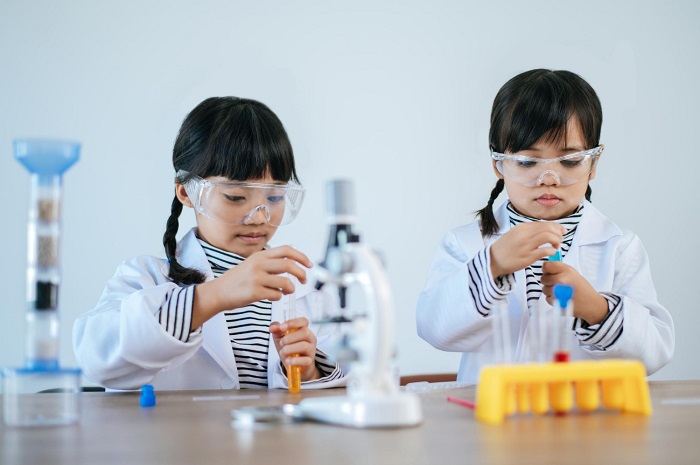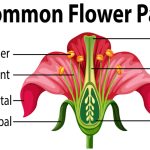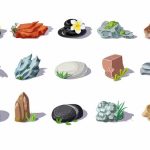You’re probably familiar with the acronym STEM, which stands for Science, Technology, Engineering, and Math. The idea behind STEM education is that all these subjects are interrelated and can be taught together. But what does this mean for children? How can we make science and technology accessible to young minds? Well, the answer is simple: You have to start early! Children have an innate curiosity about the world around them. They want to know how things work and why they behave as they do; by harnessing this natural curiosity through fun experiments and activities like those below, you can help your child learn all about STEM subjects engagingly. Click here to knowing more about the importance of early-year child education.
In this blog, we break down a few kindergarten science topics and offer easy strategies to help develop your child’s scientific knowledge. Before you know it, your child will instruct you on a few scientific principles! Ready for some kid’s fun learning?
Here we go with 5 Fun STEM Lessons Your Child Will Learn
1. Exploring the Solar System
I’m yet to meet a kid who is not curious about space! No wonder the solar system is one of the most loved kindergarten science topics. This is an excellent opportunity to introduce your child to some basic astronomy concepts while also getting them excited about the possibilities of space travel. You can start by talking about the solar system and where our planet Earth fits into it. Then discuss the other planets in our solar system and their unique features. Finally, you can finish with a fun activity that will help your child understand the solar system’s scale. Try making planets with paper mache to make kids fun learning.
2. Plant and Animal Life Cycles
While talking about kindergarten science topics, how can this one not pop up? This one encourages your child to observe and learn about the natural world around them! Your child will learn about the different plant and animal life cycle stages. They will know how plants and animals change as they grow older and what they need to survive. Use practical examples like sowing a seed with them and observing its growth.
3. The Weather & Natural Disasters
Most kindergarten science units have a section where this is covered because they will learn how to identify different types of weather, measure temperature, and predict the weather.
- Start by introducing the concept of weather. For kindergarten learning to be effective, ask the child what they know about it from what they see daily. Then explain whether types through drawings, clothes, food items, etc.
- Discuss how to measure temperature. Explain how a thermometer works and how temperature is measured in degrees Fahrenheit or Celsius.
- Teach your child about natural disasters such as hurricanes, tornadoes, floods, earthquakes, and wildfires. Explain the dangers they pose and how people can prepare for them if they occur in your area.
- Talk about ways to predict the weather, such as using a barometer or watching satellite images on TV or the internet. Discuss why it is essential to pay attention to forecasts so you can plan activities accordingly.
- Finally, discuss safety measures during natural disasters, such as evacuation plans and shelter locations in your area if one were to occur.
4. Building Structures with Blocks and Other Materials
Kindergarten science can be made very interesting by integrating it with something kids already love – blocks! One of the kindergarten science topics nudges kids to use their imagination and creativity! Kids’ fun learning is also happening at the same time!
So, to begin, provide your child with various blocks and materials such as Lego, wooden blocks, cardboard boxes, paper tubes, etc. Ask them to build something that they can think of. Give them plenty of time to explore the different materials and develop ideas.
Once they have an idea, help them break it down into smaller steps. For example, if they want to build a tower out of Lego bricks, help them plan out how many pieces they need and which colors or shapes will make the structure more sturdy.
Next, encourage your child to use other materials like string or straws to create even more complex structures. Talk about why certain materials work better than others for specific tasks and how adding extra support can make the system more robust. Finally, challenge your child to develop a creative design or pattern that looks good and functions well!
We say this is kindergarten science learning at its best!
5. Simple Science Experiments
Kindergarten science topics are many. But this one is the most loved one and adds a lot to their kindergarten learning. It’s a Science Experiment!
- Kindergarten Science Experiments With Water – This experiment involves using water as a solvent for several different substances, such as salt and sugar crystals. It is easy for students to learn how solubility works and how it affects density.
- Kindergarten Science Experiments With Magnets – Students can learn how magnets work when combined with other objects, such as paper clips or aluminum foil strips. This activity will help them understand how electromagnetism works by allowing them to see how magnetic fields interact with each other at close range (i.e., when they’re touching).
- Kindergarten Science Experiments With Light – This experiment involves using a flashlight (or another type of light source) along with some reflective surface, such as mirrors or polished metal surfaces so that light rays bounce off them before hitting
We hope this article has inspired you to explore the world of kindergarten science, kindergarten science topics, and STEM lessons. They will learn these at a preschool or can also be done at home. Preschools like Eurokids already do it. At many of the EuroKids centers, they include a subject called Scientific Thinking, which covers such topics. Do visit them to know more about it.
Introducing them to concepts at an early age – all through hands-on activities – will help foster their knowledge of our fascinating universe in a way that sparks future exploration!
Visit EuroKids for a more engaging blog.
















